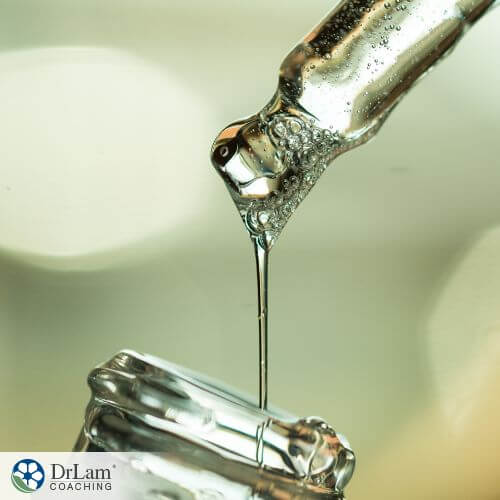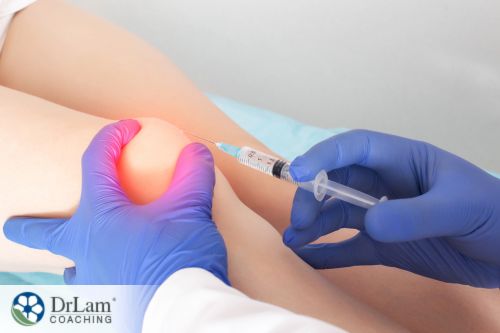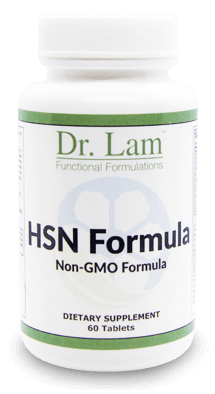Hyaluronic acid is an ingredient that graces the packages of many skin and health products. It may have a strange name, but it's an essential part of your skin, joint, and eye health. This article will explore what it is and how it can benefit you.
 Hyaluronic acid is a slippery, gooey substance that is one of the main ingredients in your extracellular matrix which provides structural support to your body. Specifically, it is abundant in the eyes, joints, and skin. It also has several benefits for the health of the skin, bones, eyes, and lungs.
Hyaluronic acid is a slippery, gooey substance that is one of the main ingredients in your extracellular matrix which provides structural support to your body. Specifically, it is abundant in the eyes, joints, and skin. It also has several benefits for the health of the skin, bones, eyes, and lungs.
With age, the natural production of hyaluronic acid starts to decline along with these health benefits. For this reason, it is a popular ingredient in many anti-aging products.
Hyaluronic acid benefits your skin in many different ways. Some of these benefits include:
Hyaluronic acid attracts and binds to water. It can hold up to 1000 times its weight, making it effective at keeping your skin hydrated as well as providing your skin with structural support (1).
Within your skin, there are two proteins that help give your skin elasticity, thus helping to prevent lines and wrinkles. These two proteins are elastin and collagen. Hyaluronic acid helps to stimulate the production of these proteins, which helps to prevent signs of aging.
With age, not only does the production of hyaluronic acid decline, but also the production of collagen and elastin. Using skin products containing them can help improve the production of these proteins.
Another important role of hyaluronic acid is that it is an antioxidant and can help to reduce and prevent damage from free radicals. Free radicals are unstable molecules that can be produced in response to pollutants, inflammation, and sun rays, among others. Free radicals in the skin not only worsen inflammation and pain but also reduce the amount of collagen. It helps to neutralize these free radicals and prevent them from causing further damage to the skin.
In the case of scars or wounds, hyaluronic acid can also help to reduce inflammation and facilitate the healing process by increasing the synthesis of collagen and elastin. In addition, it may play a role in the regeneration of new cells assisting in wound healing (2).
In the case of dark spots, hyaluronic acid may be beneficial when used in combination with skin brighteners. The moisture that it brings helps to increase the effectiveness of skin brighteners. Additionally, a common cause of dark spots is sun damage. It can help to reduce the damage from the free radicals, potentially helping to prevent future dark spots.
Hyaluronic acid is available in a wide range of different skincare products such as creams, serums, and gels as well as in injectable fillers. If the product needs to be applied to the skin, apply it before you sleep, ideally to damp skin. This will help to improve hydration.
If it is an injectable, the injection needs to be performed by a professional specializing in skin health.
However, whilst injections and topical products are effective, their effects are not permanent. Topical skincare products need to be applied regularly to be effective and injections last between six months to a year.
 Hyaluronic acid is an important part of the fluid that surrounds your joints and helps to act as a cushion. Lack of exercise and age reduces this fluid and can result in painful joints.
Hyaluronic acid is an important part of the fluid that surrounds your joints and helps to act as a cushion. Lack of exercise and age reduces this fluid and can result in painful joints.
Whilst the skin can benefit from hyaluronic acid applied directly to the skin, for joint and bone health it needs to be injected or ingested. The FDA has approved injections to the knee joint, but this is only recommended if other remedies have not been successful in reducing pain (3).
It is also a popular ingredient in supplements enhancing bone health and can be taken orally. During the digestive process, it is broken up into smaller parts and is able to cross into the bloodstream. This can help to replenish low reserves within the body and also may help with the growth of new bone cells. Studies also show that it can help to enhance bone strength.
Your eyes require fluid for optimal functioning. This is essential for preventing the eyes from becoming irritated. Dry eyes can occur sporadically for a short period or can become chronic. It is a common remedy for dry eyes, and studies suggest that eye drops with hyaluronic acid can reduce dry eyes and symptoms of it (4).
A lesser-known benefit is for lung health. Your lungs contain connective tissues, a rich source of hyaluronic acid. Thus, it can work on improving your lungs in multiple ways. With its ability to attract and bind to water, it can help keep the airways moist and help prevent the mucus in the lungs from becoming dry. It can also help to reduce and prevent free radical damage within the lungs.
To assist with lung health, it is used in an inhaler form or through a nebulizer. However, whilst research is promising, more research is necessary.
Hyaluronic acid is safe for most individuals and can be used daily. However, it is not recommended for:
If you are considering using it, check with your healthcare provider first.
Side effects with topical use are not common. However, some side effects that may occur are irritation, redness, or itchiness.
In the case of injectable hyaluronic acid, swelling, redness, and itching may occur; however, this generally resolves once the injection site heals.
There are various factors that can directly affect your skin and joint health, including stress. Temporary stress is simple for the body to handle, but chronic stress can lead to Adrenal Fatigue Syndrome (AFS).AFS is the non-Addison's form of adrenal dysfunction, where the body's stress response cannot keep up with life's chronic stressors.
During stress, the NeuroEndoMetabolic (NEM) Stress Response System helps to support the body. One of the primary ways is through the adrenal glands releasing cortisol, one of the main stress hormones. In the case of chronic stress, your adrenal glands can become depleted and imbalances within the NEM system can start to occur. This results in AFS.
Within the NEM system, there are six circuits of related organ systems. Symptoms of AFS depend on which circuit the imbalance is occurring in, but some symptoms of AFS include dry skin, sore joints, and inflammation. Hyaluronic acid in supplements like Dr. Lam's HSN Formula can come in handy here to help relieve dry skin and sore joints. Indirectly it may also help to reduce inflammation with its antioxidant properties.
Hyaluronic acid is an abundant component in the connective tissues of the body and it declines with age. It may help protect the health of your:
However, if you are concerned that your symptoms are due to chronic stress, a more comprehensive plan may be needed to help address symptoms. In that case, you can contact our team at Dr. Lam for a free initial call at +1 (626) 571-1234 where we will privately discuss your symptoms and various options. You can also send us a question through our Ask The Doctor system by clicking here.

Support Your Skin Health With HSN
Walker K, et al. "Hyaluronic Acid." StatPearls, Updated 2023 Mar. https://www.ncbi.nlm.nih.gov/books/NBK482440/
Sudha PN and Rose MH. "Beneficial Effects of Hyaluronic Acid." Adv Food Nutr Res. vol. 72, 2014, pp. 137-176. https://pubmed.ncbi.nlm.nih.gov/25081082/
Altman R, et al. "Efficacy and Safety of Repeated Courses of Hyaluronic Acid Injections for Knee Osteoarthritis: A Systematic Review." Semin Arthritis Rheum, vol. 48, no. 2, 2018 Oct. pp. 168-75. https://pubmed.ncbi.nlm.nih.gov/29496227/
Yang YJ, et al. "A Meta-Analysis of the Efficacy of Hyaluronic Acid Eye Drops for the Treatment of Dry Eyes Syndrome." Int J Environ Res Public Health, vol. 18, no. 5, 2021 Mar. pp. 2383. https://www.ncbi.nlm.nih.gov/pmc/articles/PMC7967738/
This all depends on your skincare goals. Both ingredients are popular ingredients in skincare products with slightly different benefits. Retinol is more effective at reducing the appearance of lines and wrinkles. However, hyaluronic acid is more effective at hydrating and plumping the skin, which in turn can reduce lines and wrinkles.